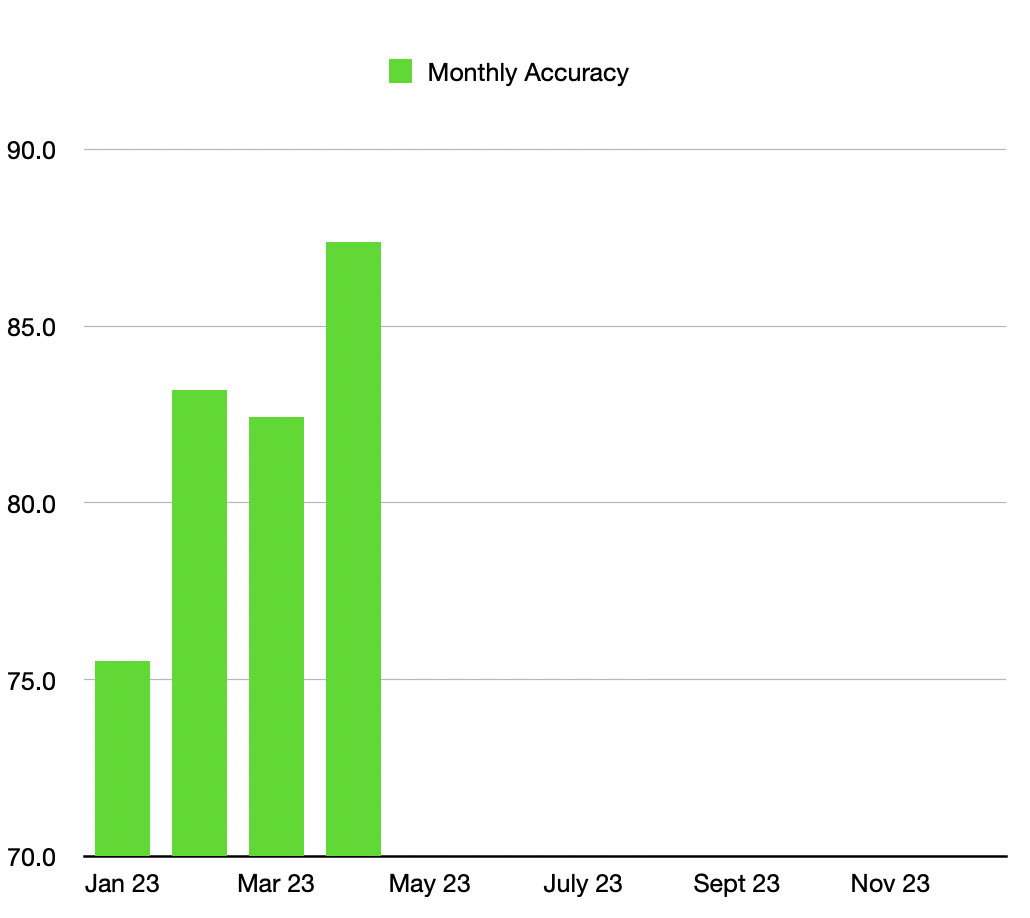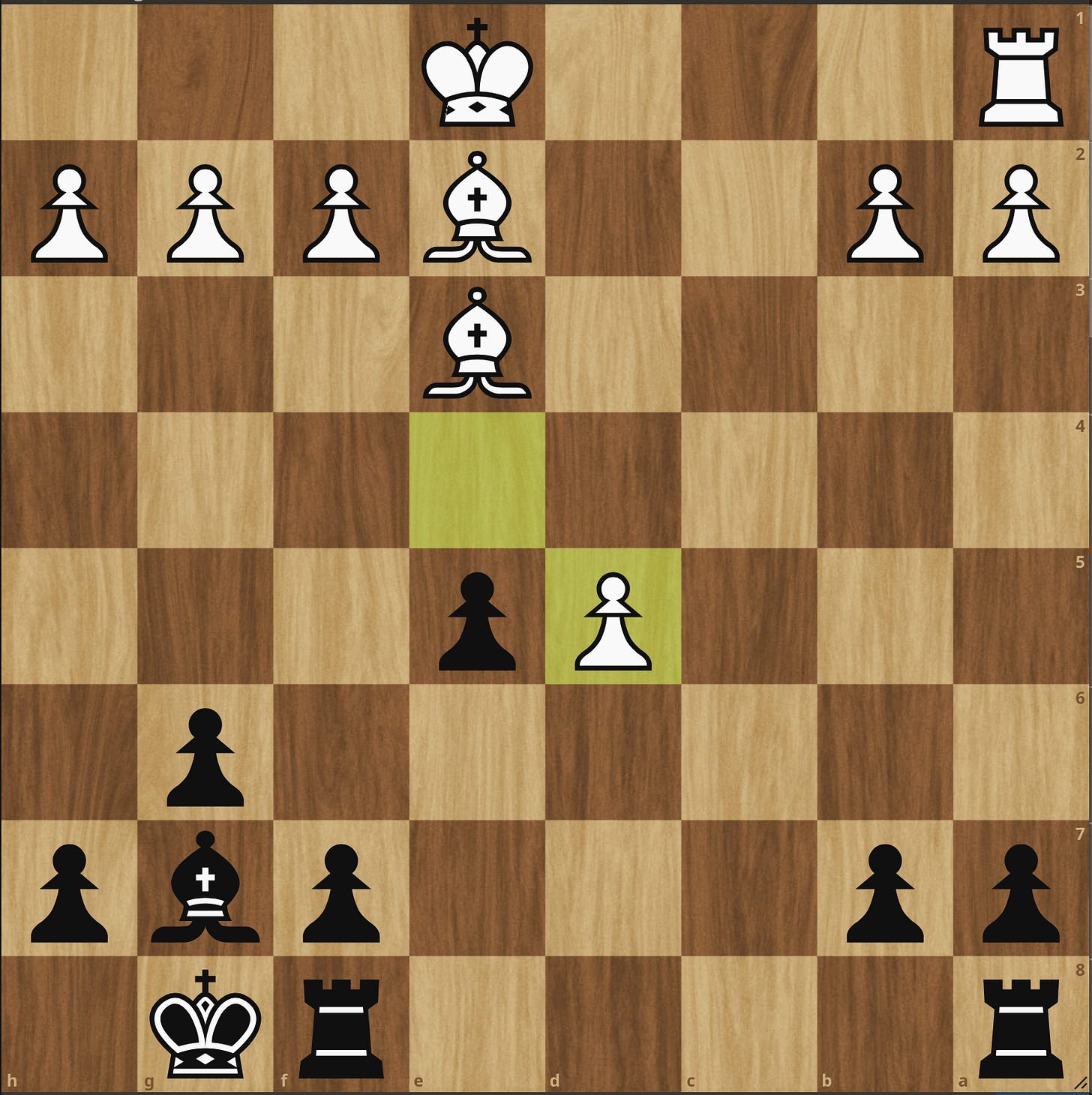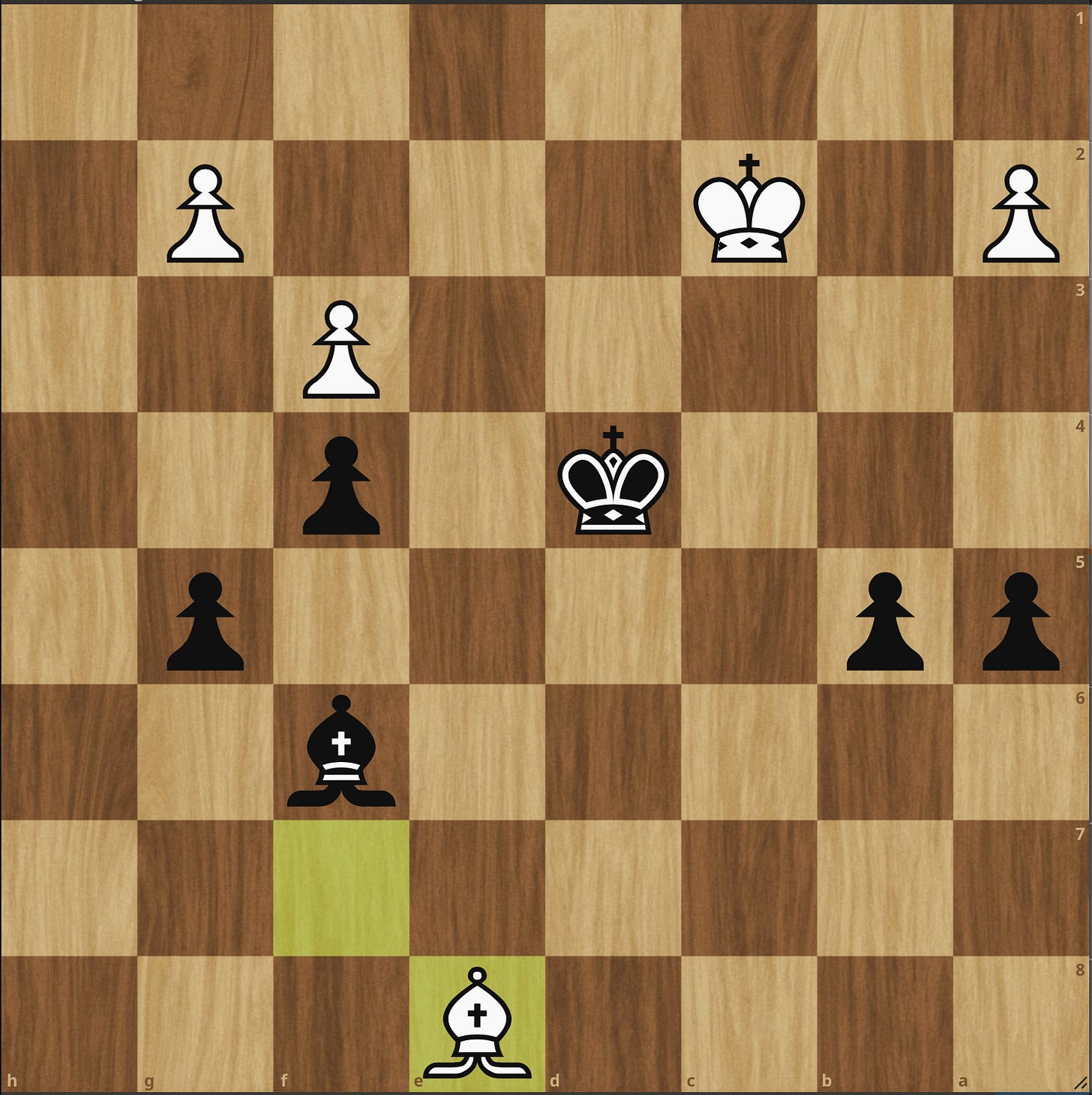April has come and gone, we’re well into May. Somewhere I lost a few weeks thanks to my daughter’s competition in VEX Robotics. Now back to chess!
April was a busy month for me chess wise. I played in my first OTB tournament for 2023! It had been 7 months since my last one… far too long. My results showed it and I went 0-2 against younger opponents. In my defense the 9 or 10 year old I lost to was the “breakout” player of the tournament so there’s at least that for my ego.
I had 11 games in total during April (7 classical on Lichess & Chess.com; 2 rapid games on Lichess, and 2 OTB 90+30 games).
My accuracy was better at 87.4%. My best game was 97% accurate. My worst game was 75% accurate. This was a clear improvement in accuracy.
Still, as a stronger player said when analyzing my games, I seem to have a series of small miscalculations that end up losing advantage and/or games. Here’s an example from one of the April games.
I’m going to win an exchange and deprive him of castling. Black is much better here. We go on to trade queens giving White an isolated pawn.
Black is up the exchange with two rooks and open files. However, White has the bishop pair. I had to be careful how I was going to play, it’s not an automatic win. Winning a “won” game as they say is one of the most difficult things in chess. Right now, I don’t yet know how to convert the advantage.
Play continued and I pressed the advantage until we got to here.
I miscalculated. I thought Black was winning after Rxd6 Bxd6 Kxd6 with a queenside pawn majority and control of the queening square. I was wrong. It’s a dead draw
There’s no way for Black to win. Ke3, Kc4, b4… it doesn’t matter. 1/2 - 1/2
My accuracy is better and I’m blundering less. Playing slow games and analyzing has helped. But I also find I have had a series of small miscalculations showing I don’t always understand the positions I’m getting.
So I’m going to do two things. First, I need to work on my calculation in games. It needs to be better. Tactics, game analysis, and using time in my games is the plan.
Second, I need some better feedback. In last months’ episode of Chess Journeys Dr, Skull interviewed @boldmovebydan the #chesspunks. (He also writes his own chess improvement blog)
The key takeaways for me were two things: First, play often. Daily rapid games (or blitz) can help you stay sharp. Playing however isn’t enough. We need to analyze, but how?
The second take away was to first analyze on my own and draw my own conclusions. Only then can I go back with the computer to see what obvious stuff I missed. This is the “sweet spot” as Dan said. Use the computer to see what you didn’t see. Try to learn the pattern, to correct the mistake.
So next time on my blog, I’m going to walk you through some game analysis. Should be fun!
Thanks as always from reading. Let me know how you’re doing in your chess!










I have been told from various sources that analyzing a game by yourself first before consulting a computer is one of the best things you can do to sharpen your critical chess thought process
I think I mentioned this on the pod but I don't usually have the willpower to actually write down my analysis before running my games through the engine. I do think that's the best way. But engine analysis, if you're thoughtful about reading the output, can be helpful on its own.